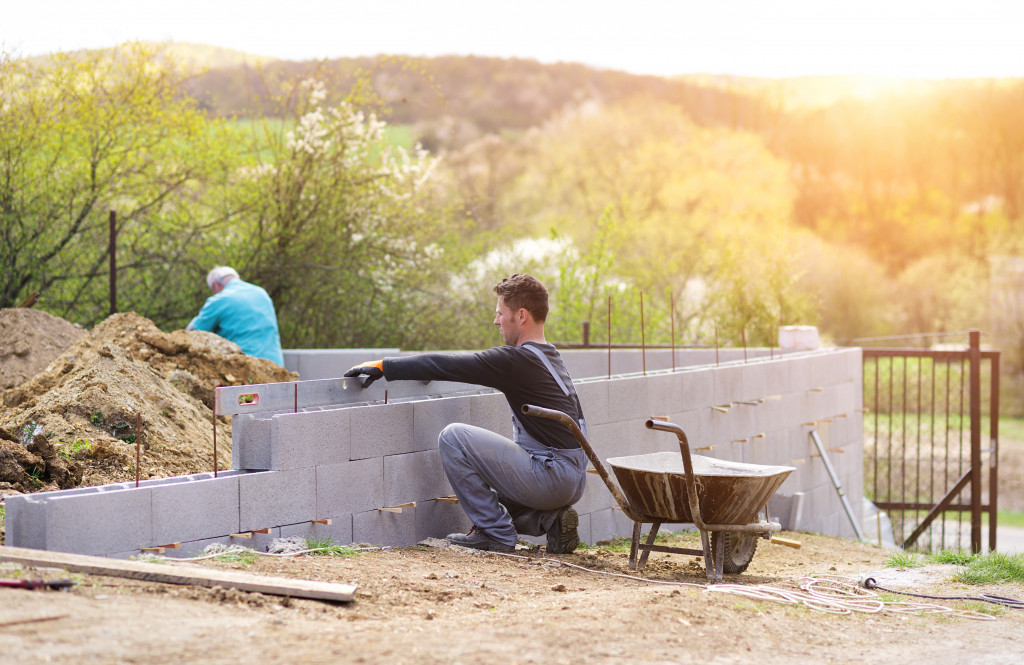Construction and real estate are crucial industries that have a significant impact on each other as well as the world economy. Let’s explore how new construction developments influence real estate, how changing real estate trends shape future construction projects, and the effect of both industries on each other’s economies.
The real estate and construction industries are interconnected. The former cannot survive without the latter—especially construction companies that focus on commercial projects. In addition, any new developments concerning housing or office spaces will directly result in more business for construction projects contracted to do the work. Simultaneously, without a consistent demand for these buildings by people in the market to purchase or rent them, the construction industry would quickly come to a standstill.
It’s crucial for construction businesses to know how much revenue they can generate from a project before starting it, as these ventures are often pricey. This is where the real estate industry becomes part of the equation.
By correctly informing developers about how much money can be made from a certain piece of land, or which locations in the country will have the most growth in terms of real estate, construction companies can make more strategic decisions. In fact, housing prices recently increased by 10-12% due to rising prices within the construction industry.
The construction industry was significantly impacted by inflation in 2021 and 202. Prices for inputs such as raw materials and labor increased at a much higher rate than the overall rate of inflation, causing construction companies to face. From April 2021 to 2022, price has increased from 30% to 100%. In response, many companies increased their prices for finished projects, which led to a decrease in demand for their services. This caused many construction projects to be cancelled or delayed, which in turn led to a decline in the amount of new construction that took place in 2021.
Though the relationship between the real estate industry and the construction industry is most often one-way, there are instances where success in construction can have a resounding effect on Real Estate. When lots of construction activity is taking place, it oftentimes symbolizes that businesses and homeowners are optimistic about future prospects and ready to invest in new properties. People are also less likely to want to buy or rent a property when the construction industry is weak because they feel uneasy about their future finances. This is due to the fact that during an economic downturn, individuals generally have less confidence in their ability to maintain stable income and employment. As a result, they become more conservative with how they spend money and tend to focus on buying necessities rather than non-essential items like properties.
Does Construction and Real Estate Affect Other Industries?
The construction and real estate industries have a ripple effect on many other industries. For example, when there is a lot of construction activity, it usually means that businesses and homeowners are confident about the future and are willing to invest in new appliances, electronics, machinery, and cars. Conversely, when the construction industry is doing poorly, it often has a negative effect on these industries as people are less likely to want to buy new things. Weak economies result in shaky consumer confidence about their financial future, leading to fewer sales of large items such as cars or appliances. It is hard to articulate exactly what the effect is; it is a symptom of a downturn but at the same time a cause of another wave of effects.
The real estate industry, the construction industry, and the mortgage industry are all intricately linked. They rely on each other for success, and if any one of them fails, it has a domino effect throughout the economy.
Home values have a direct correlation to the mortgage industry. If home values are high, people can easily get mortgages because lenders will give out loans for larger amounts. This is due to the fact that if borrowers default on their loan, they know they recover most of their investment by selling the house. Oppositely, when mortgage rates are low, homeowners are more willing take out debt as it appears more manageable with lower interest fees each month.
However, when home values are low, people have a more difficult time securing mortgages because lenders are less likely to financially extend themselves. The rationale behind this is that if the borrower defaults on their loan, the lender knows they will probably not be able to sell the property for an amount encompassing their losses.
Final Thoughts
The construction industry and the real estate industry are two of the most important industries in the world. They both have a huge impact on each other and on the economy as a whole. By understanding how new developments in construction affect real estate, how real estate trends dictate construction direction, and how these two industries affect each other’s economy, you’ll be better equipped to make informed decisions about your own personal finances as well as any investments you may be considering.


